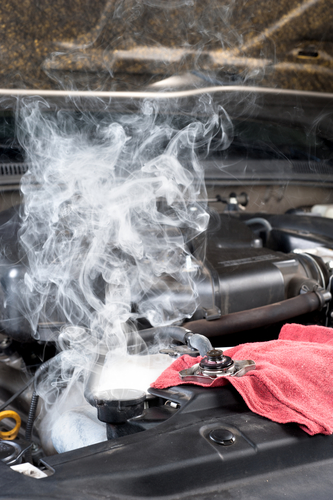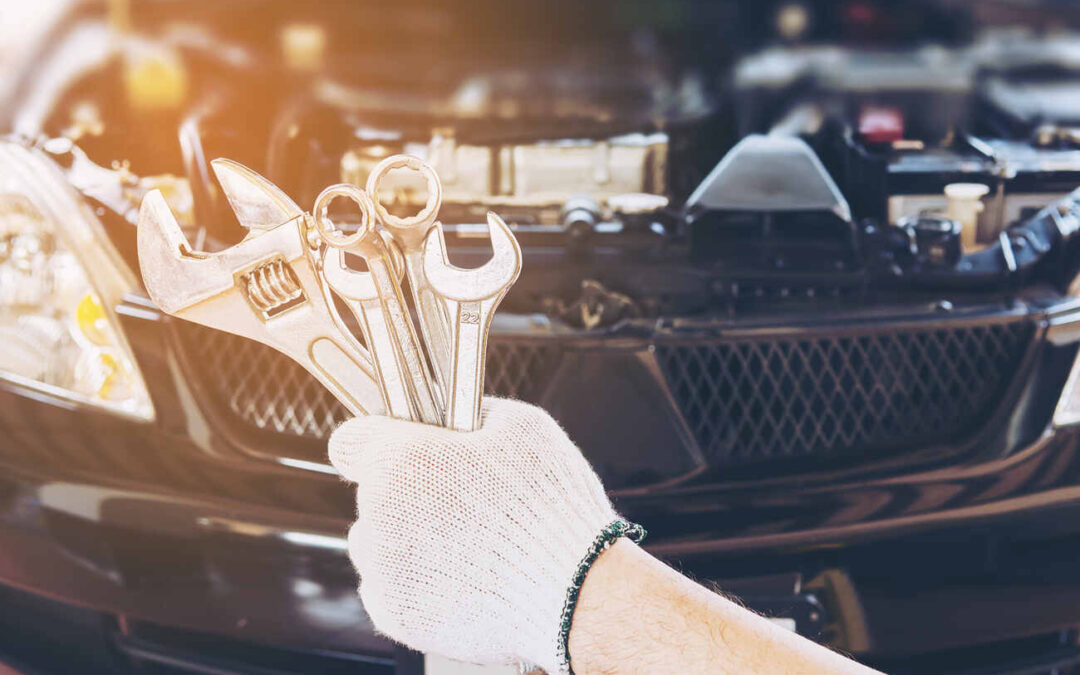Benjamin Franklin said, “An ounce of prevention is worth a pound of cure.” But, most people don’t pay much attention to their cars until they make some terrible noise, refuse to start, or break down. By then, you could be looking at some seriously expensive auto service costs. There are ways to know when your vehicle is in need of some preventative auto service that could save you a lot of inconvenience and cash.
Warning Lights
Previously, warning lights were often referred to as “idiot lights,” because, by the time they came on, it was already obvious that the problem existed. Today’s auto service industry has been revolutionized by warning lights that alert drivers to problems and give mechanics the diagnostic codes they need to help them provide excellent auto service quickly and efficiently, before you’re late for work or left stranded.
Noises
Expensive automotive service repair bills can often be avoided by drivers who pay attention to the noises that their cars make. Paying attention to strange noises coming from your car could save your life or your car’s engine. For most people, a blown engine is the end of the car. These noises could be a signal that something crucial has worn out and is near the point of failure.
- Whining. Your power steering needs attention. If it fails, you have no control over your car.
- Screeching. A belt is about to break. Depending on your car and which belt is complaining, a belt that breaks while you are driving can be a serious problem.
- Grinding. Brakes that grind could be close to failure, a problem that could cause the death of the driver or anyone else that is involved in a collision caused by brake failure.
- Knocking. Your engine is in danger of failing.

Leaks
A car’s systems are subjected to constant heat and other challenging conditions. Leaks are bound to develop. Because your service techs can tell you which system needs attention, getting to an auto service center to address leaks quickly is cheap insurance against other more costly repairs such as a failed transmission, a blown engine, or power steering failure.
Difficult Starts
Your car should start easily every time you turn the key. A car that has trouble starting is alerting you to the fact that something is wearing out and nearing failure. You may only be in need of a new battery, or it could be something more serious like a failing fuel pump. Your professional auto service tech can diagnose the problem correctly and prevent your car from leaving you stranded.
Strange Smells
It isn’t just you. There is a strange smell coming from your car and it is a symptom of a problem that might otherwise go unnoticed. Many times, a critical leak can go undetected because the fluids are leaking onto the engine and burning off, never making it to the ground for you to see and recognize the problem. This can be especially true of antifreeze, or engine coolant as hoses develop cracks that later turn into full-blown leaks. However, it could also be an oil leak, so don’t hesitate to take your car to an auto service center.
Don’t put it off
People put off taking their cars in for service for many reasons, but waiting to get your car serviced only makes the problem worse. Mechanical systems do not fix themselves. They only deteriorate further without proper auto service and preventative repair, but with timely auto service and prompt attention to your car’s warning signs, your car can be as reliable as you need it to be. So contact us today for all your car.
Frequently Asked Questions on Car Maintenance and Warning Signs
1. Why is preventative car maintenance important?
Preventative maintenance is crucial because it helps avoid costly repairs and extends the life of your vehicle. Regularly scheduled services, such as oil changes and brake inspections, can prevent minor issues from escalating into major problems. Benjamin Franklin’s adage, “An ounce of prevention is worth a pound of cure,” perfectly encapsulates this principle.
2. What do warning lights on the dashboard mean?
Warning lights on your dashboard are your car’s way of alerting you to potential issues. These lights are linked to diagnostic codes that mechanics use to identify problems quickly. Addressing these warnings promptly can prevent breakdowns and expensive repairs. Modern vehicles have advanced systems that provide real-time data for more accurate diagnostics.
3. What should I do if my car makes strange noises?
Unusual noises from your car often indicate underlying issues. For example, a whining noise might mean your power steering needs attention, while screeching could indicate a worn-out belt. Ignoring these sounds can lead to significant problems, such as engine failure or brake malfunction, which are much costlier to fix.
4. How can leaks affect my car?
Leaks are a common issue due to the constant heat and pressure your car’s systems endure. Identifying and fixing leaks early can prevent severe damage to essential components like the engine or transmission. Regular checks and maintenance can catch these problems before they lead to more extensive and expensive repairs.
5. Why does my car have difficulty starting?
A car that struggles to start may be signaling that something is wearing out, such as the battery or fuel pump. Addressing these issues early can prevent you from being stranded and avoid more significant problems down the line. Professional diagnostics can pinpoint the exact cause of starting difficulties.
6. What do strange smells from my car indicate?
Strange smells can be a sign of serious issues, such as leaks or overheating components. For instance, a sweet smell might indicate a coolant leak, while a burnt odor could mean an oil leak. It’s essential to get these smells checked out to prevent more severe damage to your vehicle.
7. What happens if I ignore regular car maintenance?
Ignoring regular maintenance can lead to a deterioration of your car’s performance and reliability. Small issues can escalate into significant problems, resulting in expensive repairs and even potential safety hazards. Keeping up with scheduled maintenance ensures your car runs smoothly and efficiently.
8. How often should I service my car?
Your car should be serviced according to the manufacturer’s recommendations, typically every 30,000, 60,000, and 90,000 miles. Regular services include oil changes, brake inspections, and other preventative measures that help maintain your vehicle’s health and performance.
9. What are the benefits of using ASE-certified technicians?
ASE-certified technicians have undergone rigorous training and testing to ensure they can handle a wide range of automotive issues. Their expertise ensures that your vehicle receives high-quality service, which can improve its performance, safety, and longevity.
10. How can I improve my car’s lifespan?
To maximize your car’s lifespan, adhere to a strict maintenance schedule, pay attention to warning signs, and address any issues promptly. Regular check-ups, timely oil changes, and brake inspections are essential practices that can keep your car running smoothly for years.




